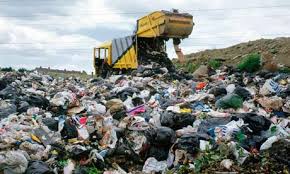waste
英 [weɪst]
美 [weɪst]
- n. 浪费;废物;荒地;损耗;地面风化物
- vt. 浪费;消耗;使荒芜
- vi. 浪费;变消瘦;挥霍钱财
- adj. 废弃的;多余的;荒芜的
使用频率:

中文词源
waste 浪费,废物
来自拉丁语vastus,空的,荒废的,词源同vain,vast。引申词义浪费。
英语词源
- waste
-
waste: [12] The etymological notions underlying waste are ‘emptiness’ and ‘desolation’. Its main modern sense, ‘squander’, is a comparatively recent development, first recorded in English in the 14th century. Its ultimate source is Latin vāstus ‘empty’, which has also given English devastate and vast. From this was formed the verb vāstāre ‘devastate, lay waste’, which passed into English via Old Northern French waster. The derivative wastrel dates from the 16th century.
=> devastate, vast - waste (v.)
- c. 1200, "devastate, ravage, ruin," from Anglo-French and Old North French waster "to waste, squander, spoil, ruin" (Old French gaster; Modern French gâter), altered (by influence of Frankish *wostjan) from Latin vastare "lay waste," from vastus "empty, desolate, waste" (see vain). Related: wasted; wasting.
The Germanic word also existed in Old English as westan "to lay waste, ravage." Spanish gastar, Italian guastare also are from Germanic. Meaning "to lose strength or health; pine; weaken" is attested from c. 1300; the sense of "squander, spend or consume uselessly" is first recorded mid-14c.; meaning "to kill" is from 1964. Waste not, want not attested from 1778. - waste (n.)
- c. 1200, "desolate regions," from Anglo-French and Old North French wast "waste, damage, destruction; wasteland, moor" (Old French gast), from Latin vastum, neuter of vastus "waste" (see waste (v.)).
Replaced or merged with Old English westen, woesten "a desert, wilderness," from the Latin word. Meanings "consumption, depletion," also "useless expenditure" are from c. 1300; sense of "refuse matter" is attested from c. 1400. Waste basket first recorded 1850. - waste (adj.)
- c. 1300, of land, "desolate, uncultivated," from Anglo-French and Old North French waste (Old French gaste), from Latin vastus (see waste (v.)). From c. 1400 as "superfluous, excess;" 1670s as "unfit for use." Waste-paper attested from 1580s.
权威例句
- 1. At the entry for " kill " , my thesaurus lists " murder " , " assassinate " and " waste " .
- 我的同义词词典在kill条目中列出murder, assassinate, waste 词条.
- 2. Solid low-level waste will be disposed of deep underground.
- 放射性水平低的固体废料将做地下深埋处理。
- 3. They make compost out of all kinds of waste.
- 他们用各种废料制造堆肥。
- 4. Overcrowding has taxed the city's ability to deal with waste.
- 人口过多使得城市的垃圾处理能力达到了极限。
- 5. The ability to separate out reusable elements from other waste is crucial.
- 能从其他废料中分离出可重复利用成分是很关键的。
